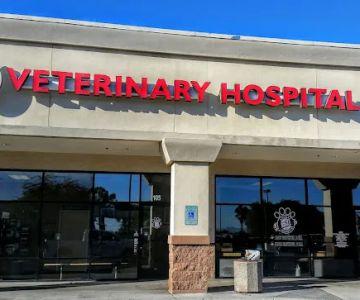A Veterinarian's Thoughts on Zoos: Ethical Considerations and Animal Welfare
- Veterinarians and Zoos: A Complex Relationship
- Ethical Considerations of Zoos
- Benefits of Zoos for Conservation and Education
- Challenges Faced by Zoos in Animal Welfare
- Alternatives to Traditional Zoos: Moving Toward Ethical Models
1. Veterinarians and Zoos: A Complex Relationship
As a veterinarian, I’ve spent a lot of time reflecting on the role of zoos in society and how they affect the welfare of animals. The question of whether zoos are ethical has been a subject of debate for many years, and it’s something I’ve grappled with personally. On one hand, zoos provide a safe haven for animals that are endangered or can no longer survive in the wild. On the other hand, many argue that keeping animals in captivity is unethical and can cause them physical and psychological harm.
Veterinarians' Roles in Zoos
In zoos, veterinarians play a crucial role in ensuring the health and well-being of animals. We are responsible for monitoring animal health, providing medical care, and helping to create environments that reduce stress and promote natural behaviors. It’s not just about treating sick animals—veterinarians in zoos also collaborate with keepers and researchers to ensure that the animals are living in an environment that closely mimics their natural habitats, within the constraints of captivity.
2. Ethical Considerations of Zoos
The ethical considerations of zoos are a frequent topic of discussion among veterinarians. One of the main concerns is the issue of animal captivity. Wild animals are meant to roam vast landscapes and live in complex ecosystems, and placing them in confined spaces can lead to stress, boredom, and even physical health problems. Some species, like elephants, are particularly vulnerable to captivity, experiencing negative effects like shortened lifespans and abnormal behaviors due to lack of space and stimulation.
Captivity vs. Conservation
However, many veterinarians, including myself, see the value of zoos in terms of conservation efforts. Many zoos are involved in breeding programs for endangered species and research that can help protect wild populations. In fact, without the conservation efforts provided by zoos, some species may already be extinct. The ethical question, then, becomes about finding a balance between the needs of animals in captivity and the goals of conservation and education.
3. Benefits of Zoos for Conservation and Education
Despite the ethical concerns, zoos do offer several benefits, particularly in terms of conservation and education. As a veterinarian, I’ve seen firsthand how zoos provide a platform for educating the public about wildlife conservation. When people are able to see animals up close, they often develop a deeper appreciation for them and are more likely to support conservation efforts. This type of awareness is crucial for funding research, establishing wildlife reserves, and pushing for policy changes to protect endangered species.
Conservation Programs in Zoos
One of the greatest benefits of modern zoos is their involvement in global conservation programs. Many zoos work with international wildlife organizations to protect species on the brink of extinction. For example, the breeding programs at zoos have helped reintroduce species like the Arabian oryx and the California condor back into the wild. These efforts are essential for maintaining biodiversity and ensuring the survival of species that are otherwise at risk of disappearing.
4. Challenges Faced by Zoos in Animal Welfare
While zoos play an important role in conservation and education, they also face many challenges when it comes to animal welfare. One of the main issues is ensuring that the animals have enough space to roam and that their physical and mental needs are met. In captivity, animals often experience limited social interaction, lack of environmental enrichment, and confinement in spaces that are not as stimulating as their natural habitats.
Psychological Effects of Captivity
From my experience, the psychological well-being of animals in zoos is a serious concern. Many animals, particularly those with complex social structures or highly developed cognitive abilities, may experience stress and anxiety when kept in captivity. Zoo veterinarians must work closely with animal keepers to create environments that provide mental stimulation, such as puzzles, toys, and interactions with other animals. However, no matter how well-designed a zoo is, there are limitations to what can be done to replicate the vastness of an animal's natural habitat.
5. Alternatives to Traditional Zoos: Moving Toward Ethical Models
As the debate around zoos continues, many are pushing for alternatives that prioritize animal welfare without compromising conservation goals. Some zoos are adopting more naturalistic enclosures, where animals can engage in behaviors that mimic those in the wild. Additionally, wildlife sanctuaries and animal rescues offer more ethical alternatives, as these facilities are often dedicated to rescuing animals from abuse or illegal captivity, providing them with much larger living spaces and a more natural environment.
Sanctuaries and Ethical Wildlife Practices
Wildlife sanctuaries are a great example of an ethical alternative to traditional zoos. These facilities focus on providing a natural environment for animals that can no longer survive in the wild or have been rescued from poor living conditions. Sanctuaries don’t breed or trade animals, which makes them more aligned with conservation efforts that prioritize animal well-being. In many cases, sanctuaries offer visitors the chance to learn about animals in a more respectful and responsible manner, while still supporting important wildlife protection initiatives.
As a veterinarian, my views on zoos are shaped by my commitment to animal welfare and conservation. While I recognize the important role that zoos play in species conservation, I also believe that we must continuously strive to improve the conditions in which animals live. It’s vital to continue the conversation about how zoos can evolve to meet the ethical standards expected by society, while still contributing to the survival of endangered species. If you’re passionate about animal welfare, I encourage you to explore ethical wildlife sanctuaries and support zoos that prioritize animal well-being and conservation efforts.











